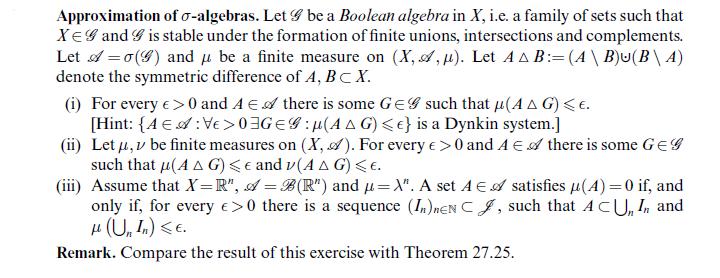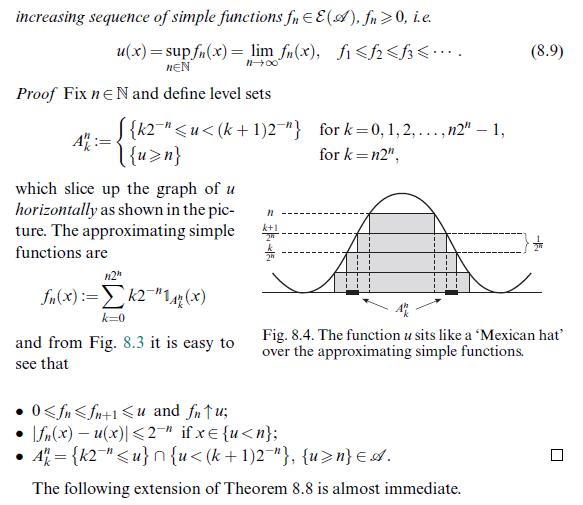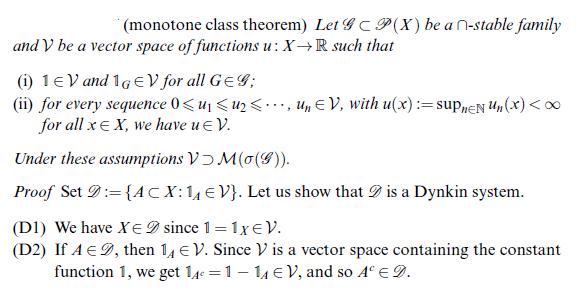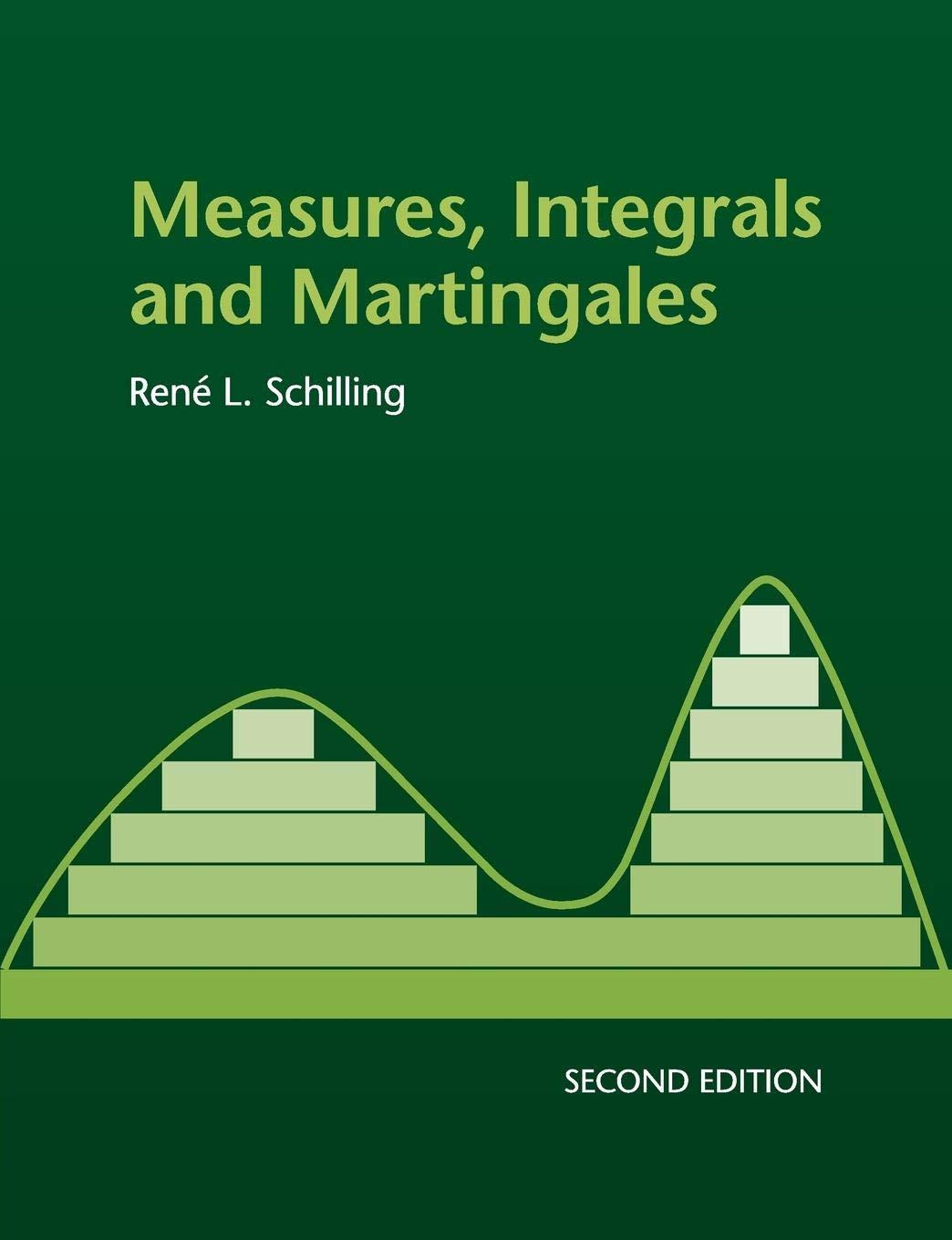Let ((X, mathscr{A}, mu)) be a (sigma)-finite measure space and assume that (mathscr{A}) is generated by a
Question:
Let \((X, \mathscr{A}, \mu)\) be a \(\sigma\)-finite measure space and assume that \(\mathscr{A}\) is generated by a Boolean algebra \(\mathscr{G}\), i.e. a family of subsets of \(X\) which is stable under finite unions, intersections and complementation and contains \(\emptyset\). Show that every \(u \in \mathcal{M}(\mathscr{A})\) can be approximated.
by a sequence \(\left(f_{n}ight)_{n \in \mathbb{N}} \subset \mathcal{E}(\mathscr{G})\) such that \(\lim _{n ightarrow \infty} f_{n}(x)=u(x)\) for all \(x \in N^{c}\), where \(N \in \mathscr{A}\) has measure zero: \(\mu(N)=0\). (The set \(N\) may, and will in general, depend on \(u\) ).
[ use the result from Problem 5.12 and combine it with Theorem 8.8 or Theorem 8.15 .]
Remark. If \(\mu\) is Lebesgue measure on \(X=\mathbb{R}, \mathscr{A}=\mathscr{B}(\mathbb{R})\), we can use \(\mathscr{G}\) as the family of finite unions of all half-open intervals \([a, b),-\infty \leqslant a \leqslant b \leqslant+\infty\). It is not hard to see that this is a Boolean algebra. The problem tells us that we can approximate any measurable function up to a null set(!) by step-functions (with finitely many steps) with basis sets of the form \([a, b)\). You should compare this result with the comparison results between the Lebesgue and Riemann integrals, see Chapter 12: in some sense this leads to a Riemannsum approximation of a Lebesgue integral.
Data from problem 5.12

Data from theorem 8.8
![(sombrero lemma) Let (X, A) be a measurable space. Every pos- itive A/B(R)-measurable function u: X [0, ] is](https://dsd5zvtm8ll6.cloudfront.net/images/question_images/1705/6/4/5/18165aa147d9271c1705645181042.jpg)

Data from theorem 8.15

Step by Step Answer:






